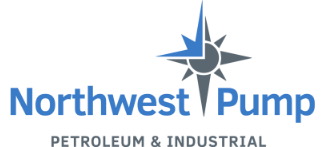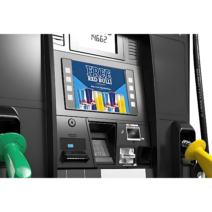Pump systems handling food or beverages must maintain a sterile environment to comply with FDA regulations. These strict standards do not end when the product exits the discharge port of a pump. A sanitary hose system is key in maintaining sterile environments for food manufacturers. Here are the key differences between polymer and metal sanitary hoses, and the best ways to use them to your advantage.
Corrugated Metal Sanitary Hoses

Sanitary pump manufacturers typically use 316L stainless steel in the pump’s wetted housing because it does not have pores or pockets where bacteria can develop and contaminate the product. Another benefit of using metal over plastic in food processing is that the material is better equipped to handle the high temperatures involved in the cleaning process. However, corrugated metal hoses are not typically used in direct contact with food products. The braid that allows the hose to bend also allows for the product to slip between the cracks and become a breeding ground for bacteria. Even after high-temperature steam sanitizes the hose system, the system cannot expel the food particles stuck in the braids.
Sanitary Applications Suited for Corrugated Metal Hoses

cutaway of a steam-jacketed hose
While metal hoses are generally not recommended for direct contact with food, there is one notable exception: steam-jacketed hoses. These specialized hoses consist of a primary hose that carries the product, surrounded by a secondary hose filled with steam or another high-temperature medium. The heat from the outer hose helps the materials inside the primary hose flow freely and prevents them from hardening. Steam-jacketed hoses are an effective solution for transporting highly viscous food products and are suitable for use when the product is being pasteurized or further processed down the production line.
Clean-in-place (CIP) systems benefit from having corrugated metal hoses to move the steam or chemical cleaning solvents through the manufacturing process after the main production is over.
Lastly, many commercial kitchens utilize corrugated metal hoses to connect gas-powered appliances to their respective gasses. Metal hoses are fire-resistant, and they provide a simple, long-term solution with easy installation between cleaning sessions.
Polymer Sanitary Hoses

Polymer or composite synthetic rubbers are the preferred materials for sanitary hose systems. These hoses comply with the sanitary guidelines associated with their applications, including FDA, USDA, and 3-A standards. Using polymer sanitary hoses offers three key benefits compared to other types of hoses.
First, polymer hoses come in a wide variety of construction options that can be tailored to meet specific requirements related to chemical compatibility, temperature, and pressure capacities of each application. While metal hoses have temperature thresholds around 260F, polymer sanitary hoses’ maximum working temperature ranges from 150F to over 230F depending on the type of polymer.

Second, polymer hoses are naturally flexible and do not require braiding or weaving the material to allow it to bend. Instead, many sanitary hose designs incorporate an internal spiraling metal wire that protects the hose’s strength and durability.
Lastly, polymer sanitary hoses prevent odors or tastes from affecting food products, improving overall product quality.
Cleaning Requirements
As with all equipment for sanitary applications, it is important to clean out polymer sanitary hoses before first use. This prevents contamination from any chemicals used in the manufacturing process and reduces smells associated with the materials. Before installing a new polymer hose system into a facility, it is important to review any chemical compatibility specifications or cleaning guidelines from the manufacturer to ensure the maximum lifespan of the sanitary hose.
Hose Master specializes in metal hoses, expansion joints, and flexible connectors. They design prefabricated hose systems to the specifications of the application at hand. Hose Master maximizes the lifespan of its corrugated hoses by combining hydroforming and crimp-forming processes to reduce the stress on the metal before it finishes production. Hose Master offers hose systems for clean-in-place applications, connections for gas appliances, and steam-jacketed hoses for viscous fluid transfer.
Continental provides polymer sanitary hoses for the food and beverage industry. Its sanitary hoses utilize UPE and other high-quality polymer inner linings for their density, cleanability, and durability. Continental carries hoses for dry bulk transfer, liquid transfer, and washdown applications.
Gates Rubber Company offers a catalog of hoses and conveyor belts for on- and off-highway loading needs. Their Food & Beverage industry-specific hoses are certified to meet FDA, 3-A Class 3, and USDA standards. Gates offers hose options for dry bulk goods, dairy products, wine, beer, juice, oils, acids, washdowns, and more.
Next Steps
Our team is ready to help outfit your facility with sanitary pumps, hoses, and fittings. Use the contact us button below to connect with your local representative. Need service on your current sanitary equipment? Request a service appointment with the ‘Request Service’ button.







